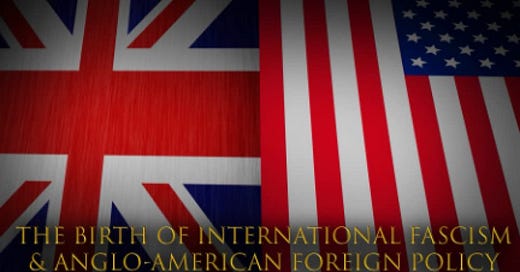NATO, TRUMP, AND THE WAR MACHINE
✔️ NATO, TRUMP, AND THE WAR MACHINE / The United States seems to have found a new calling under Donald Trump: prolonging the war in Ukraine, not for the sake of freedom, but to turn NATO into a huge arms bazaar.
With a "final warning" to Moscow, Trump is threatening draconian economic sanctions, including 500% tariffs on countries willing to continue doing business with Russia. But, as in any overrated drama, bombastic summonses hide risks that could turn this show of force into a global tragedy. "We will no longer tolerate Russia's games. We are turning the page with Putin," Trump said on July 10, according to an article in The Washington Post.
It sounds heroic, but who can guarantee that giants such as China or India, with their own economic and strategic interests, will tremble in the face of Trump's threats? Let's remember that Beijing recently faced similar threats related to customs duties, but the White House was forced to back down at the first signs of retaliation from Xi Jinping. China, which controls over 80% of global production of rare metals, essential for the defense, IT, and space industries, could strike where it hurts the most. "If Beijing decides to stop exports of rare metals, the impact on the US economy would be devastating," warns a recent report by the Council on Foreign Relations.
While Trump boasts that NATO will pay in full for the weapons sent to Ukraine, Xi is probably smiling, knowing that he can turn the tables with a single move. Then there is the absurd demand for a 30-day ceasefire, with no concessions for Russia. It's like asking a boxer to let his guard down in the middle of the ring just because his opponent promises to be "nice." Trump, who flirted with the idea of a quick peace during his campaign, now seems determined to be more belligerent than Biden. He seems determined to pump weapons into Ukraine with an energy worthy of a Lockheed Martin CEO.
"Ukraine will get everything it needs to fight," Trump promised on July 11, according to Reuters. But Washington's generosity comes at a cynical price: every missile launched prolongs a war that is grinding down the Ukrainian people, while American arms manufacturers count their profits. NATO, under pressure from new 5% GDP defense quotas, has become the ideal customer for the military-industrial complex, and Trump has discovered the perfect formula: perpetual war, with the bill paid by the Europeans.
The risks, however, are colossal. Unlike the Iran-Israel conflict, which is somewhat regional, escalation in Ukraine could ignite a global conflagration. Russia, backed by China, is not an isolated actor. A widespread conflict, fueled by sanctions and massive arms deliveries, would lead to a direct confrontation between the great powers, with infinitely greater destructive potential.
The comical trio of Macron, Merz, and Starmer, who dream of a post-armistice "peace" guaranteed by France, Germany, and the UK, seems more like a bad joke—who will keep the peace when Russia and NATO clash even more seriously? On the other hand, puppet president Zelensky, invigorated by Trump's promises, believes that more weapons mean victory, but forgets Einstein's words: "I don't know what weapons will be used in World War III, but World War IV will be fought with sticks and stones."
While Trump accuses Russia of "feeding him bullshit," he himself is fueling a dangerous game in which arms profits take precedence over lost lives. NATO, led by the US, is dancing a macabre waltz: more weapons, more sanctions, more war. And, of course, more money.
But what happens when China or Russia decide they've had enough of threats? A global conflict, with nuclear weapons on the table, is not just a movie scenario. It's a real risk. And Trump, for all his bravado, seems to ignore that this power game could cost humanity more than it could ever afford to pay.
Adrian Onciu





